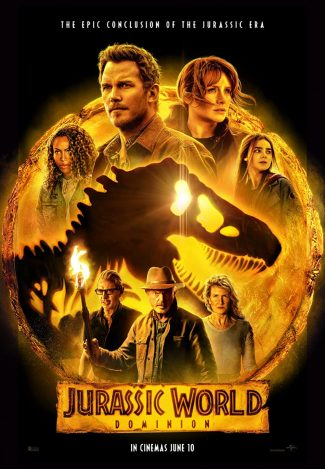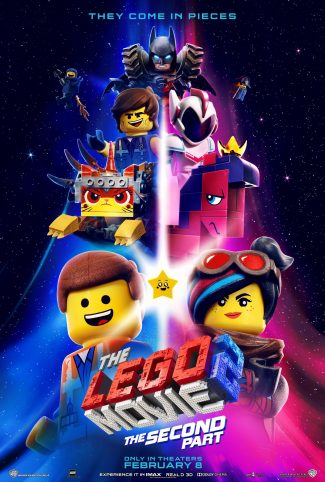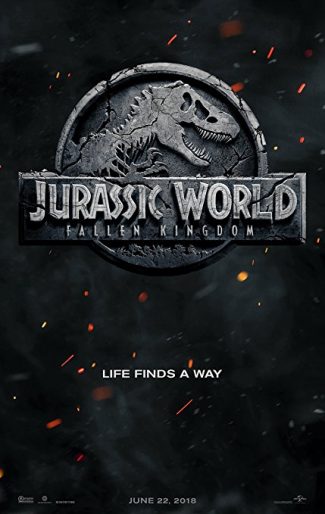We have discussed in the past the topic of the Optimum Interval Before Sequel. My personal feeling is that anything less than about two years is too short, while thirty-six years is definitely too long (though Tom Cruise may disagree with me, of course). It’s been six years since the appearance of James Gunn’s Guardians of the Galaxy Volume 2, which isn’t an inordinate gap, but it’s still hard to shake the feeling that this film has somehow missed its moment. There are good reasons for this, of course: Gunn himself got fired after being twitter-mined and went off to make The Suicide Squad for DC’s movie wing before being rehired to make the film after all, and then there was the awkward business of that pandemic which put a cramp in everyone’s style that probably still hasn’t worked itself completely out.
Even so, Guardians of the Galaxy Volume 3 has the definite sense of being one last hurrah and a chance to tie up some loose ends before Marvel move on from this particular set of characters: many of the actors have said they probably won’t be reprising their roles, while Gunn himself is off to mastermind the next phase of the rival DC Comics movie franchise (has no-one at Warner Brothers seen Brightburn…?). It certainly doesn’t seem to have any connection to the current meta-plot which Marvel have been quietly inserting into some of their recent movies.
Not that the previous meta-plot doesn’t have a beearing on the story, of course. The film opens with the Guardians of the Galaxy settling into their new base, a giant severed bonce floating in deep space (which if nothing else allows Gunn to include the line of dialogue ‘Kill everyone in that dead god’s head!’ at one point). But all is not well, as team leader Peter Quill (Chris Pratt) has gone into a bit of a slump after the love of his life (Zoe Saldana painted green) was killed in her adoptive father’s attempt to reshape the universe, and replaced by a younger version from an alternate timeline with no memory of him or any of the others on the team. Discussions amongst his friends on how to get him perked up again are predictably chaotic and unproductive. (Also back as part of the ensemble are Dave Bautista, Pom Klementieff, Karen Gillan and Vin Diesel – playing, as before, a tree.)
A more serious problem rears its head when the team comes under attack by Adam Warlock (Will Poulter), who in the comics is the perfect synthetic life form with mystical powers, but here is a sort of omnipotent golden cosmic doofus. It turns out he’s here for Rocket, the uplifted raccoon, as he is a servant of Rocket’s original creator. This proves to be the High Evolutionary (Chukwudi Iwuji), who has form in the creation and augmentation of new forms of life. But why does the High Evolutionary want the raccoon back after all this time, and how are the team going to track him down?
So, yes, another movie, another well-nigh omnipotent megalomaniac to contend with. The High Evolutionary’s particular schtick is the creation of servants out of lower forms of life (the character’s debt to The Island of Dr Moreau is perhaps acknowledged in the fact the comic version’s real name is Herbert) and some of the new film’s most memorable sequences are the flashbacks to Rocket’s youth as a lab experiment: some of these are grotesque, bordering on the grisly. Nevertheless, as villains go, he feels like someone we’ve seen before perhaps a few times too often.
On the other hand, some things never get tired, and one of them is Gunn’s talent for adding offbeat black comedy to cosmic superhero fantasy. The Guardians’ inability to actually work together very effectively most of the time is a big component of what makes these films such fun, and the action frequently grinds to a halt while the ensemble bicker at great length about how to operate their space-suit radios or what the proper use for a sofa is. This is the sort of thing which has made these films so beloved, even within the Marvel canon. It’s certainly not Gunn’s mastery of plot structure, although to be fair this one does feel like it’s flailing around less than most of his films: nevertheless, neither of Gunn’s scripts has the same robustness as the one he co-wrote with Nicole Perlman for the first in the series.
If you were to come up to me, grab me firmly by the lapels, and shout in my face that this is just another piece of corporate Marvel product which sticks to the same formula as most of the thirty-one Marvel Studios films which have preceded it to the screen, my response would probably be ‘Please let go of my lapels.’ And then, ‘Well, you may have a point.’ Personally, I don’t necessarily have a problem with a film being formulaic, as long as it’s a good formula, and I happen to enjoy the one that Marvel have cooked up – I know they’ve had a bit of a post-pandemic, post-Endgame wobble, but their films are usually still smart, funny, pleasing to look at and generally well-played and well-directed. Admittedly, some of the new characters they drop in are obscure even to someone with an attic full of comics (Sylvester Stallone has a cameo as someone called Starhawk) and only seem to be present to set up future instalments (Will Poulter gives a fun performance as Adam Warlock, but it doesn’t feel like there’s a burning reason for him to be in the film), but this is par for the course, really.
What does make this film a bit distinctive within the canon, apart from all the space weirdness, is the genuine sense of warmth and camaraderie between the main characters. They are fun to spend time with, as well as inevitably bringing back fond memories of some of the previous films they’ve appeared in. The film does have real heart and soul to it – the tone is a bit darker than in previous episodes, as the Guardians begin to contemplate moving on from their somewhat irresponsible lifestyle and figuring out what their different places in the universe are. Guardians 3 gets much closer to being moving and poignant than I would ever have thought possible, which is a sign of real growth in James Gunn as a writer and director. (Maybe those upcoming DC movies really could be something special.) This is a welcome additional facet to what was already a terrifically entertaining popcorn blockbuster.








